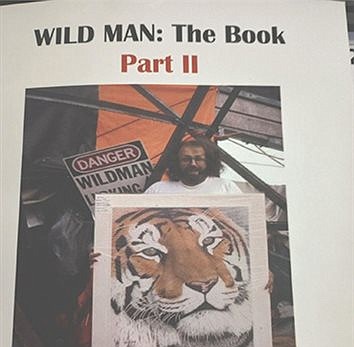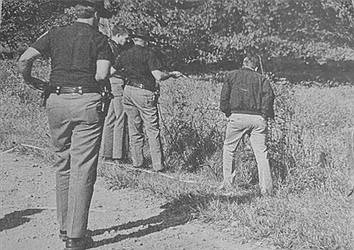Grubbs responds to Involuntary Chapter 7 Bankruptcy filing
January 31, 2024 at 1:53 p.m.
On Jan. 19, the pickleball community was rocked when Indiana Secretary of State Diego Morales announced the Indiana Securities Division issued a Cease and Desist to stop an alleged fraudulent investment scheme concerning "All about Pickleball LLC., also known as Pickleball Rocks.
The cease and desist came after three civil suits were filed against Rodney Grubbs in the Franklin County Circuit Court: Larry Peck, Debbie Peck v. Rodney Grubbs, Philip Piche v. Rodney Grubbs, and Justin Masterson, Meryl Masterson v. Rodney Grubbs.
In the Larry and Debbie Peck v. Rodney Grubbs case, the plaintiffs alleged that on Aug. 18, 2020, the defendant issued a "Personal Promissory Note" payable to the plaintiffs. The Note was a reaffirmation of debt owed for money plaintiffs gave the defendant starting in 2012, and it replaced several notes the defendant had given plaintiffs earlier starting in 2012. The Note's principal amount was $430,133.05, much of which represents the plaintiffs' retirement money - "plus interest of 14% APR." All principals and interests due under the Note were to be paid in one lump sum to plaintiffs on or before Aug. 18, 2022, without demands. According to the complaint, Grubbs defaulted on the Note without excuse and has refused to play plaintiffs any portion of the overdue principal and interest. The defendant has also ignored the plaintiff's post-default demands for payment and other attempts to communicate with him concerning the debt. The complaint further alleged Grubbs misrepresented material facts, made fraudulent omissions, and engaged in other false and deceptive conduct.
All three civil suits resulted in default judgments because Grubbs failed to appear or respond to the complaints. Hence, Grubbs was deemed to have admitted all the factual allegations. Larry and Debbie Peck were awarded $1,677,196.
The American justice system addresses the wrongdoings that people commit with two different types of cases: civil and criminal. Generally speaking, criminal cases are offenses against the state, even if immediate harm is done to an individual. Accordingly, they are prosecuted by the state in a criminal court.
On the other hand, civil cases typically involve disputes between parties regarding the legal duties and responsibilities they owe to one another. The standard of proof for a civil and criminal case also varies. In general, crimes must be proven beyond a reasonable doubt. In contrast, civil claims are proven by lower standards of proof, such as the preponderance of the evidence.
Grubbs is also facing an Involuntary Chapter 7 Bankruptcy petitioned by Jennifer Butler, Andrew Evans, Meldoy Woodsum, Eldonna Coates, Jack Handy, Greg Hilligos and Branch Lew (petitioners). Involuntary bankruptcy is a legal proceeding through which creditors request that a person or business go into bankruptcy. Creditors can request involuntary bankruptcy if they think they will not be paid if bankruptcy proceedings don't occur. The Involuntary Chapter 7 petition alleges, "Grubbs is a serial defrauder who has victimized at least 100 people, and upon information and belief continues to take money, from new victims." The petition continues, stating, "Upon information and belief, Grubbs' fraudulent scheme has netted him at least $10 million and perhaps much more in money wrongfully obtained and retained. Grubbs has also admitted paying earlier investors with money borrowed from new investors."
Grubbs readily admitted in his response to the Involuntary Chapter 7 Bankruptcy he had no less than 250 investors. He further stated:
"Since this Chapter 7 filing came after an initial series of social media posts alleging fraud and securities issues, my initial legal focus and discussions were with defense attorneys and civil law attorneys on Dec. 14 and 15, 2023.
In search of the proper counsel to address the uniqueness of an involuntary Chapter 7 filing, I have spoken with four individual bankruptcy attorneys through initial consultative phone calls and or emails.
I do apologize to the court for requesting the short extension to determine an answer to the petitioners' motion in this bankruptcy case.
Due to very limited remaining cash assets, I have not retained legal counsel for this case, but based on the information gathered in the calls, texts, and emails with the aforementioned attorneys, I will personally provide my answer.
In speaking to the above-listed bankruptcy attorneys, they were all in agreement that an Involuntary Chapter 7 filing is a somewhat rare case, usually reserved for situations where the debtor has significant dissolvable assets to satisfy the petitioners and all the future participating creditors.
Since my assets do not fit into that category, I therefore respectfully oppose the granting of this motion for the following reasons:
My current non-exempt asset list contains 11 single low-income family rental properties that would currently be valued at approximately $800k, and the Pickleball Rocks business with approximately $150k paddle /apparel inventory plus unknown intellectual property value has been greatly diminished based on recent coordinated social media attacks.
Mr. Matthew Foster, attorney for the petitioners, has additionally filed for and successfully received default judgments in excess of 2.9 million dollars for two additional lenders.
Therefore, realizing that an Involuntary Chapter 7 ruling would have an extremely negative impact on the many families who would receive a very small distribution from the sale of assets, I pray the court will consider the following: In my consultation calls with attorneys, both informed me that Chapter 11 is an area that may be more helpful to the creditors. In chapter 11, a business can be preserved and restructured and actually allow lenders to become shareholders of the company and participate in all future profits.”
The bankruptcy filing is pending.
Latest News
E-Editions
Events
On Jan. 19, the pickleball community was rocked when Indiana Secretary of State Diego Morales announced the Indiana Securities Division issued a Cease and Desist to stop an alleged fraudulent investment scheme concerning "All about Pickleball LLC., also known as Pickleball Rocks.
The cease and desist came after three civil suits were filed against Rodney Grubbs in the Franklin County Circuit Court: Larry Peck, Debbie Peck v. Rodney Grubbs, Philip Piche v. Rodney Grubbs, and Justin Masterson, Meryl Masterson v. Rodney Grubbs.
In the Larry and Debbie Peck v. Rodney Grubbs case, the plaintiffs alleged that on Aug. 18, 2020, the defendant issued a "Personal Promissory Note" payable to the plaintiffs. The Note was a reaffirmation of debt owed for money plaintiffs gave the defendant starting in 2012, and it replaced several notes the defendant had given plaintiffs earlier starting in 2012. The Note's principal amount was $430,133.05, much of which represents the plaintiffs' retirement money - "plus interest of 14% APR." All principals and interests due under the Note were to be paid in one lump sum to plaintiffs on or before Aug. 18, 2022, without demands. According to the complaint, Grubbs defaulted on the Note without excuse and has refused to play plaintiffs any portion of the overdue principal and interest. The defendant has also ignored the plaintiff's post-default demands for payment and other attempts to communicate with him concerning the debt. The complaint further alleged Grubbs misrepresented material facts, made fraudulent omissions, and engaged in other false and deceptive conduct.
All three civil suits resulted in default judgments because Grubbs failed to appear or respond to the complaints. Hence, Grubbs was deemed to have admitted all the factual allegations. Larry and Debbie Peck were awarded $1,677,196.
The American justice system addresses the wrongdoings that people commit with two different types of cases: civil and criminal. Generally speaking, criminal cases are offenses against the state, even if immediate harm is done to an individual. Accordingly, they are prosecuted by the state in a criminal court.
On the other hand, civil cases typically involve disputes between parties regarding the legal duties and responsibilities they owe to one another. The standard of proof for a civil and criminal case also varies. In general, crimes must be proven beyond a reasonable doubt. In contrast, civil claims are proven by lower standards of proof, such as the preponderance of the evidence.
Grubbs is also facing an Involuntary Chapter 7 Bankruptcy petitioned by Jennifer Butler, Andrew Evans, Meldoy Woodsum, Eldonna Coates, Jack Handy, Greg Hilligos and Branch Lew (petitioners). Involuntary bankruptcy is a legal proceeding through which creditors request that a person or business go into bankruptcy. Creditors can request involuntary bankruptcy if they think they will not be paid if bankruptcy proceedings don't occur. The Involuntary Chapter 7 petition alleges, "Grubbs is a serial defrauder who has victimized at least 100 people, and upon information and belief continues to take money, from new victims." The petition continues, stating, "Upon information and belief, Grubbs' fraudulent scheme has netted him at least $10 million and perhaps much more in money wrongfully obtained and retained. Grubbs has also admitted paying earlier investors with money borrowed from new investors."
Grubbs readily admitted in his response to the Involuntary Chapter 7 Bankruptcy he had no less than 250 investors. He further stated:
"Since this Chapter 7 filing came after an initial series of social media posts alleging fraud and securities issues, my initial legal focus and discussions were with defense attorneys and civil law attorneys on Dec. 14 and 15, 2023.
In search of the proper counsel to address the uniqueness of an involuntary Chapter 7 filing, I have spoken with four individual bankruptcy attorneys through initial consultative phone calls and or emails.
I do apologize to the court for requesting the short extension to determine an answer to the petitioners' motion in this bankruptcy case.
Due to very limited remaining cash assets, I have not retained legal counsel for this case, but based on the information gathered in the calls, texts, and emails with the aforementioned attorneys, I will personally provide my answer.
In speaking to the above-listed bankruptcy attorneys, they were all in agreement that an Involuntary Chapter 7 filing is a somewhat rare case, usually reserved for situations where the debtor has significant dissolvable assets to satisfy the petitioners and all the future participating creditors.
Since my assets do not fit into that category, I therefore respectfully oppose the granting of this motion for the following reasons:
My current non-exempt asset list contains 11 single low-income family rental properties that would currently be valued at approximately $800k, and the Pickleball Rocks business with approximately $150k paddle /apparel inventory plus unknown intellectual property value has been greatly diminished based on recent coordinated social media attacks.
Mr. Matthew Foster, attorney for the petitioners, has additionally filed for and successfully received default judgments in excess of 2.9 million dollars for two additional lenders.
Therefore, realizing that an Involuntary Chapter 7 ruling would have an extremely negative impact on the many families who would receive a very small distribution from the sale of assets, I pray the court will consider the following: In my consultation calls with attorneys, both informed me that Chapter 11 is an area that may be more helpful to the creditors. In chapter 11, a business can be preserved and restructured and actually allow lenders to become shareholders of the company and participate in all future profits.”
The bankruptcy filing is pending.





